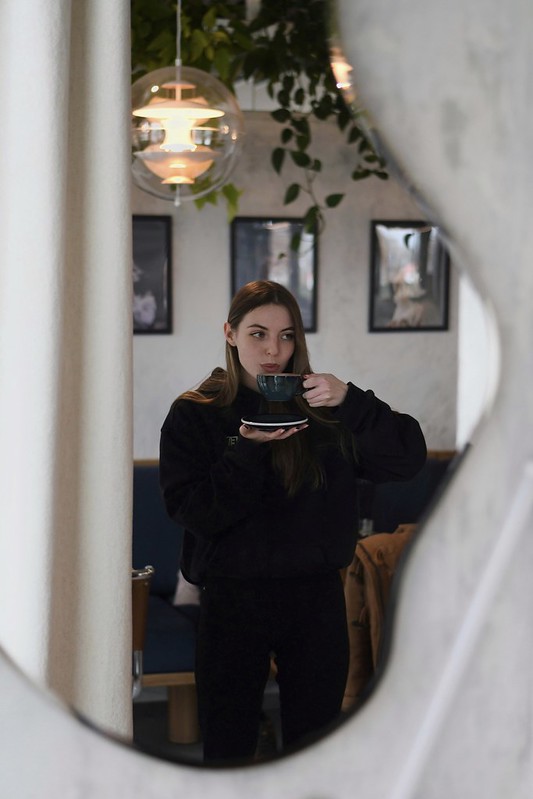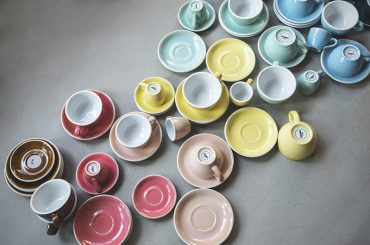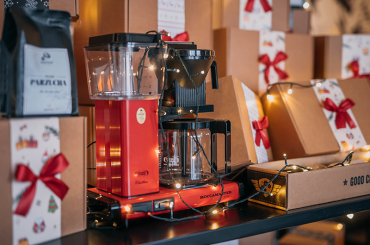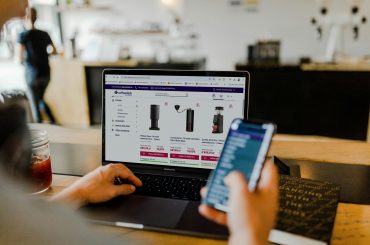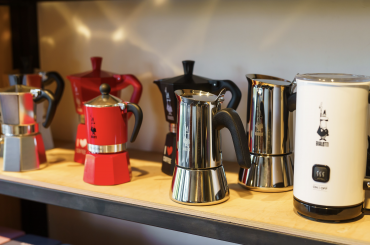Is coffee your passion? Are you dreaming about opening your own café? Then you’re in the right place. I’ll walk you through the steps you need to take in order to make this dream come true. I can’t promise that it’s going to be easy, but I hope that my perspective will help you make a decision whether to start today or whether you need to look into a couple of things and refine them?
The best coffee is one thing, but the best café is a whole ‘nother story
Krzysztof Mika, Retail Area Manager, Coffeedesk
The Coffeedesk Way:
Number one: it all starts with you! That’s right, with you. Remember that your favourite coffee in your favourite café is not going to tell you what you’re actually going to face as a business owner and how complex and comprehensive management skills you’re going to acquire in the process of opening and running a coffee shop.
The more you learn on your own, the more you’ll understand, the easier it will be for you to make important decisions later, and your mature leader approach will serve as an example for your partners, managers and employers.
Our approach in Coffeedesk is a fair amount of crazy and fun improv, but before we throw ourselves into making up amazing design and the most awesome toilets in the whole HoReCa industry, we spend a huge amount of time meticulously planning and poking holes in our plans, so that unnecessary organisational issues won’t trouble us once we dive into our favourite creative activities.
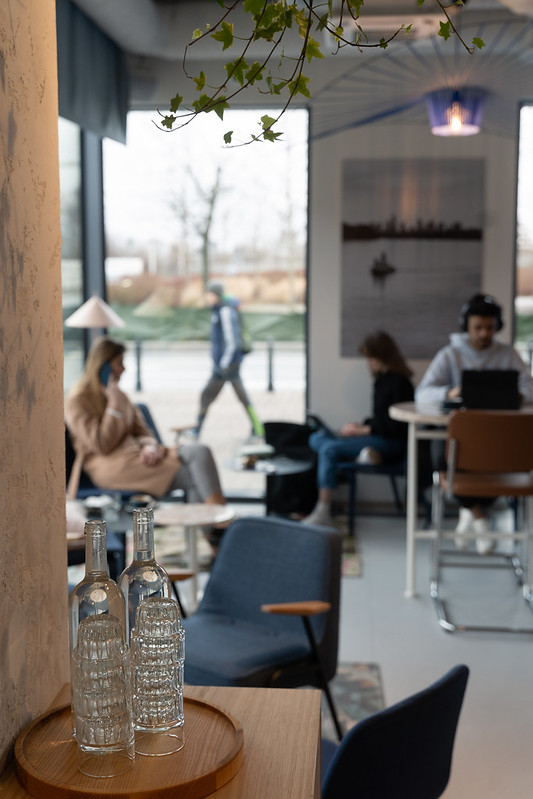
It might not be my favourite task (and I guess it won’t be yours either) but I often start from planning schedules and putting all organisational tasks together so that everything is going as planned. So, I’m handing you down some basics to start with and, you have my word, if you follow the plan, we’ll be drinking delicious coffee in your own café very soon.
Vision and Mission:
Imagine that in 3 months we’re meeting at the opening of your own coffee shop. That’s fast, right? And it is possible, but only when you know why you’re building it and who you’re building it for.
Defining your vision and mission sounds lofty but, believe me, after a few years of ups and downs you’ll look at your business and smile at the reason you’ve done all this. What’s more, if you develop and open up more coffee shops, this document will be absolutely essential for you. Based on it you will decide if you want your café to stay as it is or whether it needs any changes.
So, ask yourself those 5 magical questions (according to SWOT analysis) and don’t start your job until you’re absolutely sure to be 100% in line with what you’ve written down.
- What are my strenghts?
- What are my weaknesses?
- What human and financial measures do I have?
- What or who drains my energy and holds me back from going after my dream?
- Why am I doing this? What keeps me going?
You’ll say: ‘Ok, but I know all this’. Trust me, you don’t. Only when you sit in front of a blank page, in silence, with your favourite coffee and start putting your thoughts down on paper, you’ll see how difficult it is and how much work you need to put into forming a few important and, most of all, honest sentences. By the way, a little heads-up: if it turns out that a sweet candy is turning into a bitter pill along the way, and you see fewer and fewer strengths, take a break and get back to the process after a week. Don’t hurry, take your time – you’ve just started designing your future, you don’t want to rush it, do you?
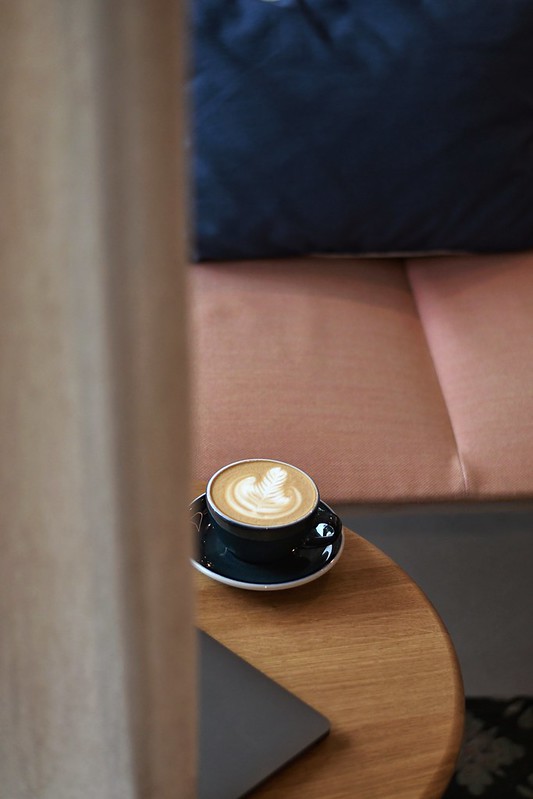
Concept / Café / Product / Location / Business Plan
Your vision and mission are ready, the decision is made, let’s get this going! What do you mean by a café? What is it exactly? Coffee, right, but: what kind of coffee? Who will be your supplier? How much will it cost? How to calculate the price? How many varieties should you serve? What about water? What about the equipment and the brewing method?
The list could go on and on, endlessly, until we both get a headache, but that’s just the tip of the iceberg and the start of micro-questions that you’ll end up asking yourself sooner or later.
What’s my strategy? I’m getting back to my paper sheet and ask myself a couple of basic questions. Then I just put down on paper everything that I can and then delete stuff I’ve written until all I get is all that should stay. Once I’ve done it, time for my favourite part:
Concept:
- Open up Instagram and make an inspirational mood board on Pinterest. It doesn’t matter if the spots are in Poland or abroad, put there everything in the style and vibe you like.
- Ask a group of friends for a creative brainstorm and let everyone pick their favourite photos: a focus group made of friends can make wonders! Write down all the reasons why certain people pick a specific style.
- Compile the number one inspiration and the notes in one file and your first real concept outline is ready. PS: Your architect is going to love you for that!
- Other questions to ask your friends: What is your favourite café and why? What irritates you the most in a coffee shop? What coffee do you drink? How often do you drink coffee? How many times per week do you go to a café and what do you order? What do you eat in a coffee shop when you get hungry?
This seemingly simple game will push you miles forward. Most importantly, you’ll realize what you don’t want, and that’s already a huge input. On top of that, your friends will definitely give you a ton of advice on what you should and shouldn’t do. It’s nothing personal, take it with a pinch of salt – but don’t take it too lightly either. To each his own way and you’re getting into hospitality, which is exactly that: an endless stream of opinions and evaluation in every possible area.

Café:
Next, open Excel (you can’t do a single thing in foodservice industry without it) and make a list of necessary equipment. Don’t worry about tables and furniture, that’s a job for your architect. What I mean at this point is professional equipment that is absolutely essential for you to make coffee.
My suggestion is: contact us. We’ll be happy to share our experience and know-how and give you tips on what to buy and why. Believe me, even if you choose not to buy these devices directly from us, the sheer consultancy will open your eyes to how many variables there are in this matter.
You can’t escape permits and legal aspect. Opening any kind of foodservice establishment means a ton of red paper. Once you’ve picked the location and signed the lease, the fun with renovation begins. Remember about health inspection, alcohol license, if you’re going to sell it, water tests and technological design, which most interior architects don’t offer.
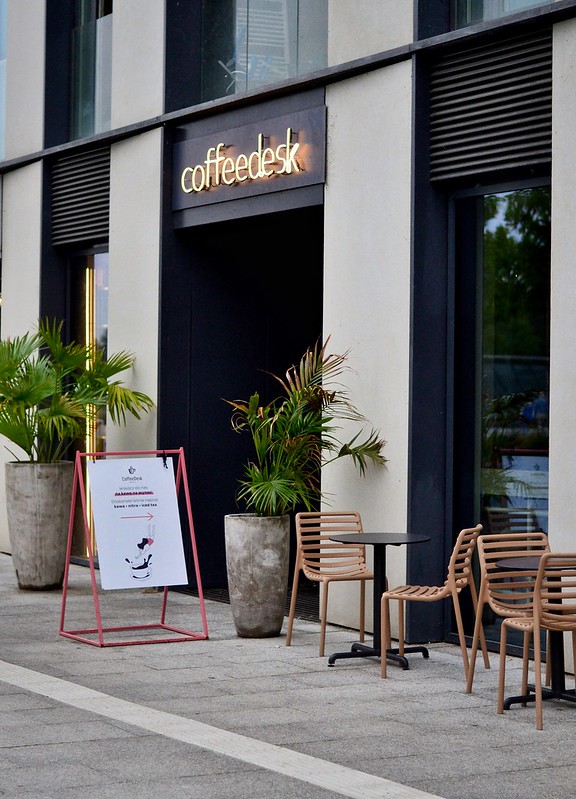
Product:
Asking around, good research and networking are the basics. Gather round a good team and visit other coffee shops. I recommend a European Coffee Trip app – it features all the best speciality cafés in Europe.
Drink coffee, look around, take pictures and notes – they are priceless and absolutely crucial. Talk to baristas – they are walking coffee encyclopaedias.
Next, check out our website: coffeedesk.pl – we offer a wide selection of delicious coffee from Polish and foreign roasters – test it out, look for inspiration and taste that you want to share with your guests.
Don’t forget about the food: cafés today are not just coffee spots, but places serving yummy cakes and savoury snacks. Look for local vendors and start collaborating. In big cities there are plenty of pastry workshops that will take care of delivering great treats to your place.
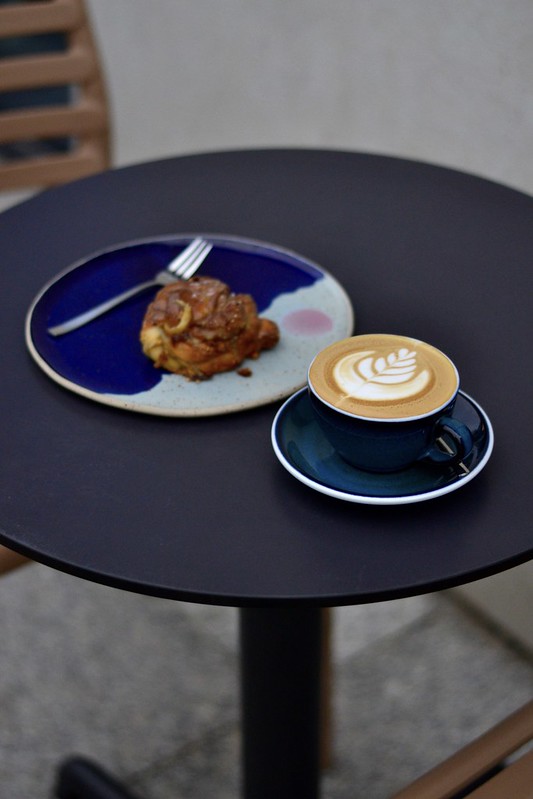
Location:
In case of a café, nothing is more important that choosing the right location. How to pick up the best one? The best idea is to use a professional company but we all know that sellers want to sell 😊. So, when you talk to a real estate agent, follow my four standard verification methods and they’ll sing a different tune.
- Small towns – don’t be afraid to open an interesting concept spot in the city centre filled with other foodservice establishments. The more food and drink places in the neighbourhood, the better! People are circling around and the perfect quality you offer will definitely draw them to you. Watch out: opening a place near housing estates in small towns, where people rush to work in the mornings and then rush straight back home for dinner, is risky. If you live in an area like this, try to remember how many times you have actually bought coffee, even in a small local shop.
- Big cities – take the noise map, a zoning map and a cadastral map. Hop on your bike and take a ride around your districts of interest at various times of day, check out when traffic is at its highest. Talk to baristas, ask about weekends, if their customer retention is big, etc. Check out the streets around the underground system (yes, I’m aware that the only metro in Poland is in Warsaw), railway stations and crowded places in general, take a note of what people are doing at various times of day.
- Seasonal spots – always the most challenging. Obviously, summer at the seaside and good coffee will always mean great takings, but you need to save a large portion of it for wintering. Still, you do the same: go there in person, check it out, talk and take notes.
- Office areas – it seems that every good office serves coffee, but let he who has never sneaked out for their fav oat milk latte to a neighbouring café cast the first stone. What’s more, these surroundings mean primarily a ton of informal gatherings. A good café with an extra fast Wi-Fi and rooms for work might be a good shot in such areas.
A free quick tip: Google has been sharing information about busy areas on its maps. It’s as simple as that: pin these places and see what generates busyness and what food and drink services are available in the area.
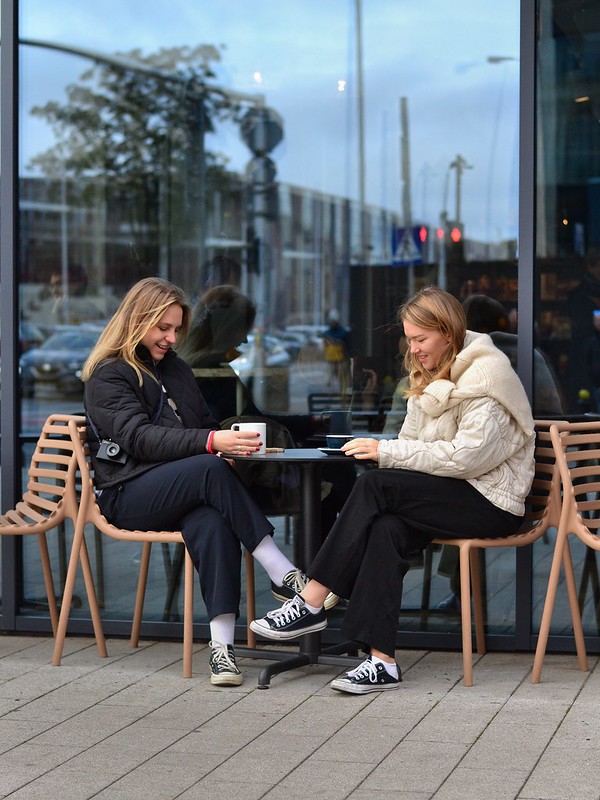
Business Plan:
All right, Krzysiek, it’s all a good read, but how much is it going to cost me? Let me tell you, it’s not going to be cheap. But I’m not here to scare you, but to help you, so let’s get moving:
There’s a reason why I’ve left this paragraph for the end. The vision, mission, values and research are creative foundations to begin with, which you put together later to devise a proper business plan. Let’s assume that you have already done all this and you know where you see your café in 3 months. Business plan is no monster, it’s a final document which sums up all you’ve written down and workshopped above, supported by numbers:
- Project of a café: Market prices vary from 15,000 to even 40,000 zlotys per project design. Choose your architect wisely. Check their experience, ask about their portfolio. Then, call the entrepreneur that collaborated with them and ask how it went. Paper endures all, so it’s better to spare 2 minutes of your time to make sure it’s actually worth it.
- Custom-made cabinetry: Sky is the limit. Currently, for standard projects of 150-200m2 of space, finding a carpenter that will take less than PLN 95-100 thousand with a wooden bar, is a pipe dream. That’s the minimum, unless you know or are related to a carpenter who is willing to cut a deal.
- Furniture: It depends on the architect’s ideas, but not less than PLN 60-80,000 to begin with. You need to buy sturdy furniture suitable for high-traffic hospitality business. Tables, chairs, outdoor seating area – it must all be really solid.
- Appliances: a dishwasher, an ice maker, a refrigerated display, refrigerators, sinks, taps, water filters etc. are within PLN 40-60,000 price range. So there’s that. If you decide that you want to cook and need a fume hood and ventilation system, prices may exceed PLN 100-150,000. A small tip if you open a spot in a new building – while negotiating your lease, talk about the so-called fit out. It means that part of the facilities that will remain in the building, like ventilation, is paid for by the building’s owner.
- Bar equipment, crockery, cutlery: A good espresso machine is a must and we have excellent experts that will be happy to help you choose the best possible machine. At Coffeedesk we are using La Marzocco coffee machines (PS: We have a really great offer from that producer 😊).
The cost is from PLN 20,000 to even PLN 150,000, but it’s not an accessory that we should save on. Other equipment includes filter coffee machines, like those from Bunn.
When it comes to ceramics, I can definitely recommend one of our brands, Loveramics, which produces the most durable and reliable cups and plates on the market. Believe me, we dropped them from such a height that they stood no chance and they didn’t even chip. Plus the variety of colour options is pretty impressive.
If you want to run a café serving alternative coffees, remember about servers and accessories for manual pour-over brewing. Our recommendations are: Hario, Chemex and Aeropress.
- POS and online systems, as well as external controlling and accounting services:
A good customer service system is key, remember about the following aspects: sales reports will be of crucial interest to you, so that you know what’s going on and what sells best. The system should be intuitive to use, especially for your future employees. You should also be familiar with the warehouse system and make sure that you understand how to operate it. The products that are currently available on the market and worth recommending are: GoPos, AmberPos and Nomee.
Controlling and accounting services: nothing is more important in this business than a professional accountant specializing in this field. Why? P&L in foodservice industry is really long and the number of cost invoices you’ll see will be hard on you many times. The person on the other side of the fence must be your good advisor. It will help you optimise costs, which is key to profitability of your business. So, search online for a company that deals with accounting and controlling. I highly recommend ADD online, a dynamically developing company which offers top-quality controlling and accounting services and a management panel for a current online data analysis.
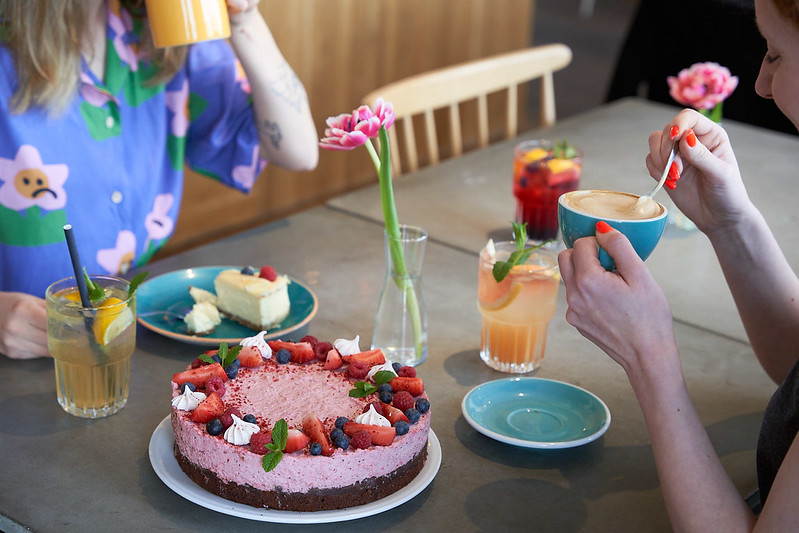
Summing up, I believe that nowadays you need to spend from PLN 300,000 to even PLN 1,000,000 to create a really good café with decent equipment and cool design. A lot depends on the city, location and other aspects that I’ve mentioned before, but from my experience, if you really think through your idea, it really may be a cool and profitable business.
I hope that this text will bring you a few steps closer to opening your dream coffee spot, and not discourage you from doing so. If you have any questions, feel free to write to me. I’ll be happy to help and support you in developing your business.


